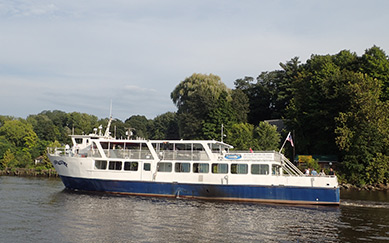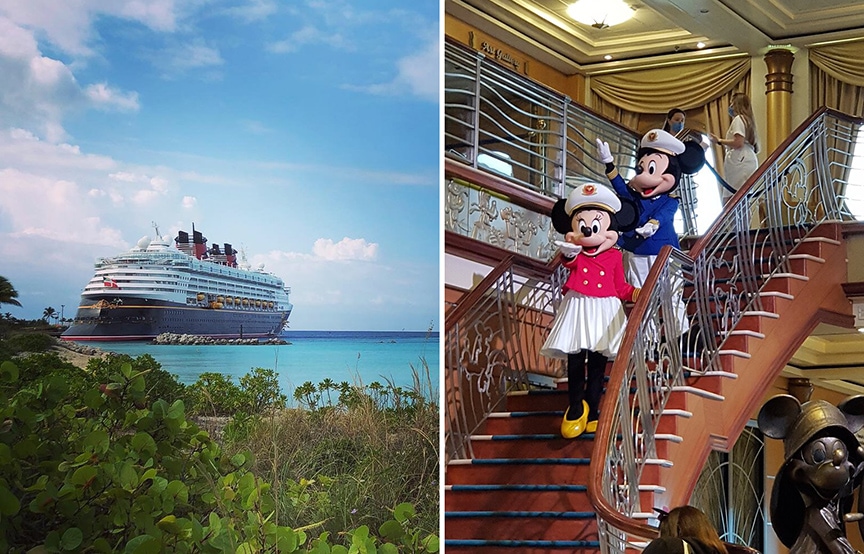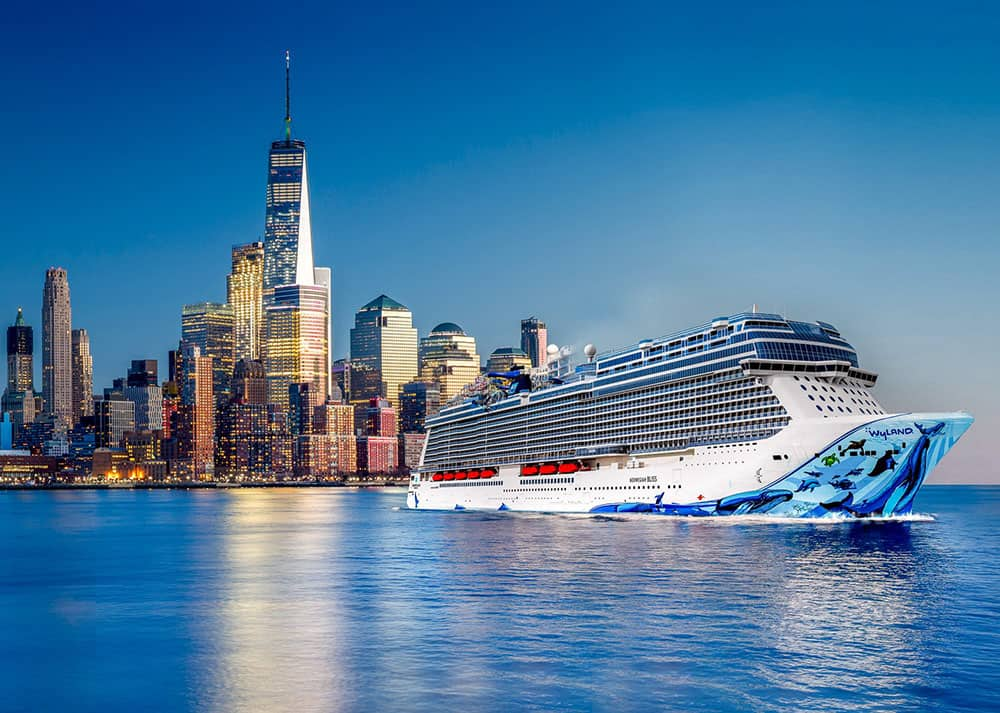
There are many different types of cruises. There are three types of cruises: river cruises, expedition cruise liners and specialty cruise lines. Let's look at some of the various types of cruises, and what makes them different from one another. The main difference between these types of cruises is the type of destination they visit.
Specialty cruise lines
The speciality cruises offer a unique experience and are ideal for those looking for something different. These smaller ships offer more intimate accommodation and a wide range of itineraries. They have experts who will help you to learn about topics you might not know.
Celebrity chefs often work with staff on specialty cruises and can create menus that are unique for the ships. Royal Caribbean's Jamie's Italian restaurants offers a prix fixed menu with dishes from Jamie Oliver, a well-known chef. There are many options on the menu, including White Oak Pastures beef tenderloin and San Daniel prosciutto. Coppa piccante from a Chicago-based salumeria is another highlight of Jamie’s Italian menu.

Many specialty cruises take passengers to exotic places that are not available to the general public. As a result, the price of a cruise on a specialty line can be significantly higher than a similar cruise on a mainstream line. Some of the ships also offer back-to-back cruises between different ports, so you can, for example, cruise from Istanbul to Rome to Barcelona. Back-to-back cruises also vary in price. Some companies charge extra for back to back cruises while others sell them as a single vacation.
Expedition cruise liners
There are many different types of expedition cruise liner. There are some that focus solely on Antarctica or other polar regions. Others, however, will travel to the oceans of the world. These vessels all follow strict environmental regulations and are geared towards helping preserve these pristine regions. The next generation is under development and will be greener than the previous. It will feature many technological innovations, cool design features and even an underwater viewing area.
While many other cruise lines feature spacious interiors and amenities, expedition liners are designed for active travelers. They typically have fewer passengers than 200, and are therefore smaller in size. You have more time to explore and can react quickly to changes in the weather or wildlife. The ship can be changed if necessary, as there is no set itinerary.
River cruises
There are many benefits to river cruises. River cruises are more flexible than ocean cruises and offer smaller groups. Guests are able to spend more time exploring the cities and towns they visit. A smaller group means that guests are more likely connect with one other. River cruises offer a unique way to visit multiple destinations simultaneously.

Many river cruises offer all inclusive packages. These packages could include pre- or post-cruise lodging, group excursions, and prepaid gratuities. Meals are either served onboard, or at one the many restaurants along the banks of the river. Meals are generally fresh and locally sourced. Guests are treated to entertainment from the local area and guided walking tours.
Most river cruises make stops in major cities. Paris and Budapest offer great choices. River cruises offer guided tours, which allow passengers to explore the culture, art and history of the destinations they visit. Some river cruises allow passengers to explore the area on their own. River cruises are not only open to tourists, but also allow for optional shore excursions. There are plenty of things to do, no matter what your interests, during your stay.
FAQ
What do you get when you cruise?
Have fun is the most important thing. You don't need to go overboard - just enjoy yourself.
There are plenty of activities available for everyone. Even if you're feeling bored, you can always find someone to talk with.
Cruising is all about relaxing and enjoying yourself. Cruising is not about seeing as many places as possible.
There are many cruises that you can take, from short European trips to long Pacific voyages. It all depends on the purpose of your vacation.
How long does it take from port to port?
There are many factors that affect how long it takes to reach the port. These include distance between port and ship, speed of ship travel, etc. Important to remember that some ships dock very close by shore, so they can unload their passengers as quickly as possible. Other ships dock further away from land, so it takes longer for the ship to arrive.
Are there any drawbacks to cruising
There are some important things to consider when considering the pros & cons of cruising. Some people may find that they don't want to spend their entire vacation on a boat. Some people prefer to be closer to the shore or stay in a hotel. Some may not like being so far away from the land. These fears can be easily overcome if you choose a cruise with plenty time ashore.
Statistics
- You'll need to budget around $80 per person per day for this option – and an additional 18% gratuity. (travel.usnews.com)
- The line estimates savings of 50% when you purchase this bundle. (travel.usnews.com)
- *20% Gratuities Apply on Free Unlimited Open Bar; Free Specialty Dining. (ncl.com)
- If you're traveling alone, you may also need to factor in a single supplement, adding up to as much as 100% of the cruise fare. (travel.usnews.com)
External Links
How To
How to keep safe while on a cruiseship
On a cruise ship, there are many things you should know before embarking on your journey. To avoid getting into trouble, you must know how to behave onboard. These safety tips will make your trip more enjoyable.
-
Be aware of your surroundings at all times. On board a cruise ship, people tend to congregate together, especially during meals. It is easy to lose sight of your task when you are surrounded by people who want food and chat. This shouldn't distract you from the work you are supposed to do. If you notice someone engaging in dangerous behavior, such as smoking, or drinking alcohol, politely tell them to stop.
-
Your room key should always be with you on board the ship. If you get lost or need to be found, this will help you to locate your shipmates. Also, make sure to have your passport.
-
Keep your valuables out of sight. Most cabins are equipped with drawers beneath the bed. This is a great place for valuables like passports, credit cards, or money. Be sure to keep nothing valuable out of plain sight. Keep your bags hidden in the closet.
-
Hydrate. It can be hard to remember that cruise ships provide ample water. You can take advantage of the complimentary bottled water onboard. You should avoid becoming dehydrated. Dehydration can cause fatigue and make it difficult to concentrate, leading to arguments or even accidents.
-
Always pay attention to announcements. Announcements can also be seen on television screens and in public addresses systems. They include safety procedures and emergency exits as well as weather reports. These announcements should be heeded. They might save your life!
-
Never leave your cabin unlocked. No matter how kind a crew member might seem, your cabin should be locked. Thieves can often get in through unlocked doors. A crew member can grant permission to use the restroom.
-
Avoid going overboard alone. It can take some time for the ship's crew and you to be rescued from the water. Your body may be attracted by sharks and other sea creatures. It is best to wait for help.
-
You should not smoke in an elevator. These elevators can quickly become smokey due to their high pressure. If you feel dizzy or lightheaded, get off immediately. It doesn't necessarily mean that breathing is safe, even though the outside air is clean.
-
The evacuation procedure. Every year, many people die in elevators. Follow the screen's instructions if an emergency happens.
-
Get familiar with the fire drill. Fire drills happen regularly, usually once per day. Everyone on deck must evacuate when there is a drill. Follow the crew members' instructions. Once the drill is complete, go back to your cabin and lock the door.
-
Ask questions before accepting food and drink. Cruisers are often concerned about food poisoning. Many people don’t know that certain foods may not be safe to consume while aboard a cruise ship. For example, raw oysters are forbidden aboard most cruise ships. If you aren't sure if the food being offered to you is safe, politely decline and choose another meal.
-
You should be cautious when swimming in the pool. Inadvertently falling into pools has been a frequent occurrence. Do not be alarmed if you fall in the pool. It is possible to slip and tumble on the deck at any given moment. Always wear appropriate footwear and pay close attention to what's around you.